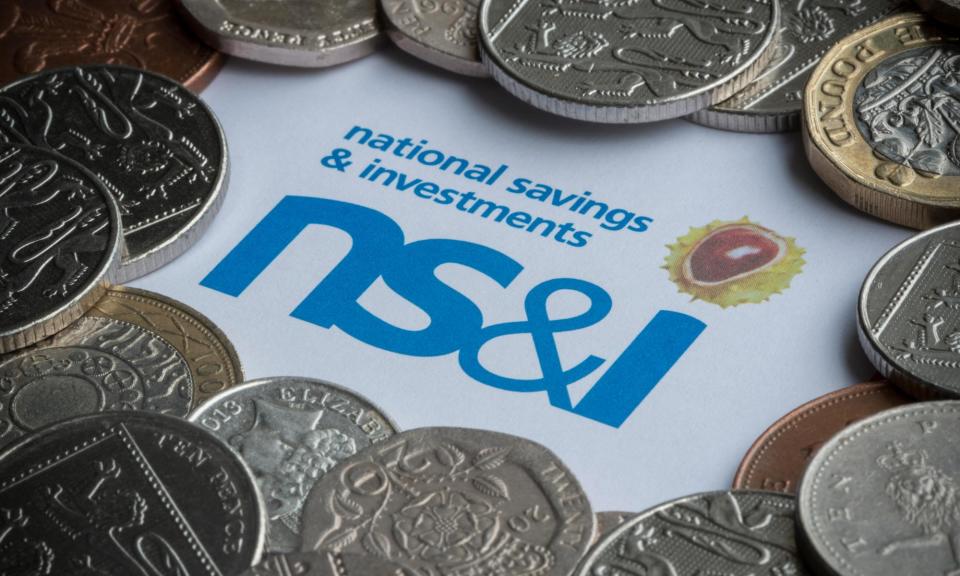British Savings Bonds: after the fanfare, interest rates hit a flat note

The UK government’s savings bank, NS&I, this week unveiled its new “British savings bonds”. The three-year, fixed-rate accounts pay up to 4.15% interest, but analysts say there are others out there offering better rates.
That said, some people will like the fact that, as with all NS&I savings, “your money will be 100% secure, backed by HM Treasury”. And those, who for whatever reason, have a very large sum – such as from a house sale or an inheritance – and need to stash it away for a time, may be drawn to another feature: being able to invest up to £1m in each bond.
They were announced by the chancellor, Jeremy Hunt, in the budget last month, and went on sale this week. NS&I says they have been launched “to help people save for the longer term and support their savings goals, safe in the knowledge that their investments are 100% protected”, adding: “Your savings will be invested back into supporting the UK.”
However, Laura Suter, the director of personal finance at the investment platform AJ Bell, says the bonds are “a fancy bit of marketing” and a “rebadged” version of previous offerings.
So what’s the deal? These are savings accounts aimed at those investing a lump sum and that are online-only (“with support for customers who are unable to transact online”). These offer a guaranteed rate, fixed over three years, for investments of between £500 and £1m.
The guaranteed growth bond pays 4.15%, while the guaranteed income bond, which pays out a monthly income, offers 4.07%.
You won’t be able to access your money until your bond reaches maturity. Once you have bought a fixed-term bond, you can’t add any more money to it. But you can buy more bonds if they are still on sale.
Some experts are less than impressed with the rates being offered. A headline 4.15% is “disappointing, especially after the fanfare in the budget, because it’s so far behind the market leaders”, says Sarah Coles, the head of personal finance at the investment platform Hargreaves Lansdown.
She says that easy-access savings are dominating the market, with some offering returns of 5% or more, without any need to tie up your cash for longer.
At the time of writing, Virgin Money, Skipton building society and Paragon Bank were among providers offering 5%-plus on instant/easy-access accounts, according to financial data provider Moneyfacts.
Coles also says there are a number of three-year, fixed-rate savings bonds offered by banks and building societies that are paying 4.65% or more. This week, these included accounts from Close Brothers Savings and Hampshire Trust Bank, among others.
Though it is fair to say that in many cases, the highest rates are offered by players that some people will be unfamiliar with.
Coles concedes that “there will be some interest in these bonds. The fact you can hold up to £1m will appeal to those with huge savings balances, because this is 100% guaranteed by the Treasury, so savers can hold it all in one place without having to worry about the fact that the FSCS [Financial Services Compensation scheme] protections are limited to the first £85,000 with any institution.”
Suter says signing up for a 4.15% rate “means you’re sacrificing returns in order to save with NS&I, so you need to weigh up whether that’s a sacrifice worth making”.

 Yahoo Finance
Yahoo Finance 